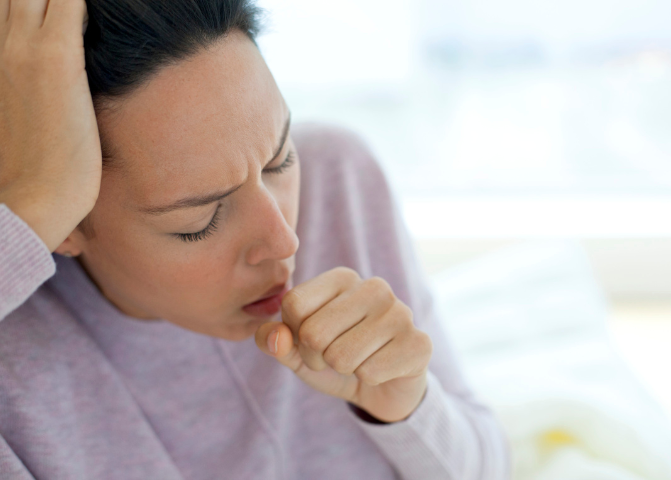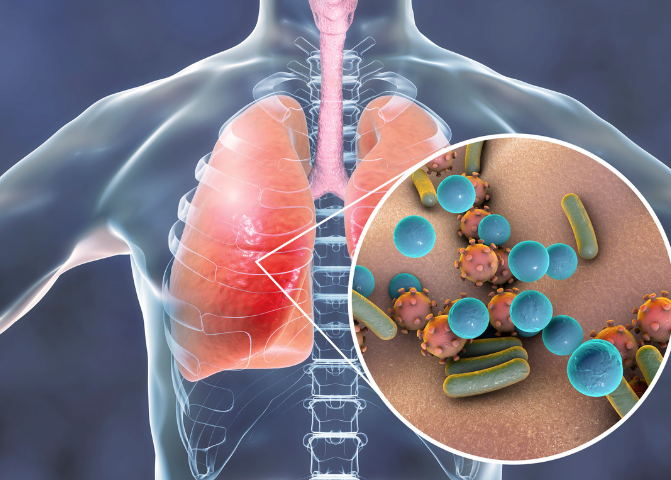Chest Infection And Cough – How To Treat Guide

Table of Contents
Chest infections and upper respiratory tract infections are one of the major reasons of lost time from school and work. Understand and learn more about the causes, symptoms and recommended treatment for chest infections in this quick guide.
Chest infections and upper respiratory tract infections are one of the major reasons of lost time from school and work. The causes can range from common seasonal infections through to some very serious infections. Let’s learn about the common symptoms for chest infections and what are the recommendations for treatment, including antibiotic choice.
Chest infection symptoms
The most common symptoms associated with a chest infection are:
- Cough: dry and hacking or productive (bringing up sputum)
- Sputum types:
- Thin, clear and white: viral infection
- Yellow or green: purulent, due to cellular damage, possible bacterial infection
- Thick and sticky +/- plugs : asthma
- Blood streaked: can be sign of bacterial infection or serious infections, pulmonary oedema or cancer
- Post nasal drip
- Sore throat +/- hoarse voice
- Fever, hot and cold spells
- Headache
- Muscle aches and pains
- Wheeze or shortness of breath
- Discomfort or pain with deep breathing

Chest infections are caused by viruses and bacteria.
Causes of chest infection
The causes of chest infection can range from common seasonal viral infections to very severe infections and medical conditions.
- Viruses: common cold, influenza, Covid-19
- Bacteria: Streptococcus pneumonia, Mycoplasma pneumonia, Haemophilus influenza
- Reflux disease: acid reflux is a common cause of cough
- Asthma
- Severe causes: tuberculosis, cancers, intertitial lung disease, foreign bodies, heart failure, blood clots
Is a chest infection contagious?
Yes. The most common causes of chest infections are viruses that are spread seasonally such as the common cold and influenza. Covid-19 is now a very serious cause of chest infections. So it is important that if you have a cough or symptoms of a chest infection that you wear a mask, wash you hands regularly and consider remaining isolated from other people until your infection improves.
How to get rid of a chest infection
Cough due to a seasonal infection is usually a self-limiting condition, caused by viruses in over 90% of cases. Recommended treatment is good symptom management:
- Paracetamol regularly for aches and pains and fever.
- Hydralyte for fluids. Drink lots of fluid to prevent dehydration and to loosen the mucus in your lungs, making it easier to cough up.
- Raising your head up with extra pillows while you’re sleeping – to make breathing easier.
- Using an air humidifier or inhaling steam from a bowl of hot water – to ease your cough (be careful with hot water).
- Think about a plan to stop smoking when you recover to prevent chest infections in the future.
A doctor may advise medical treatment for a chest infection if there are concerning symptoms or as backup if your symptoms are worsening.
Treatment for chest infection
For mild chest infections that do not require hospitalisation, the doctor may consider oral medical treatments. Talk to a Medmate online doctor today.
Join the Medmate Community!
Receive free expert health advice from Australian doctors and health advisors. Join the Medmate community now - just what the doctor ordered.
Health Information I Medication Education & Tips I Patient Stories & Videos.

